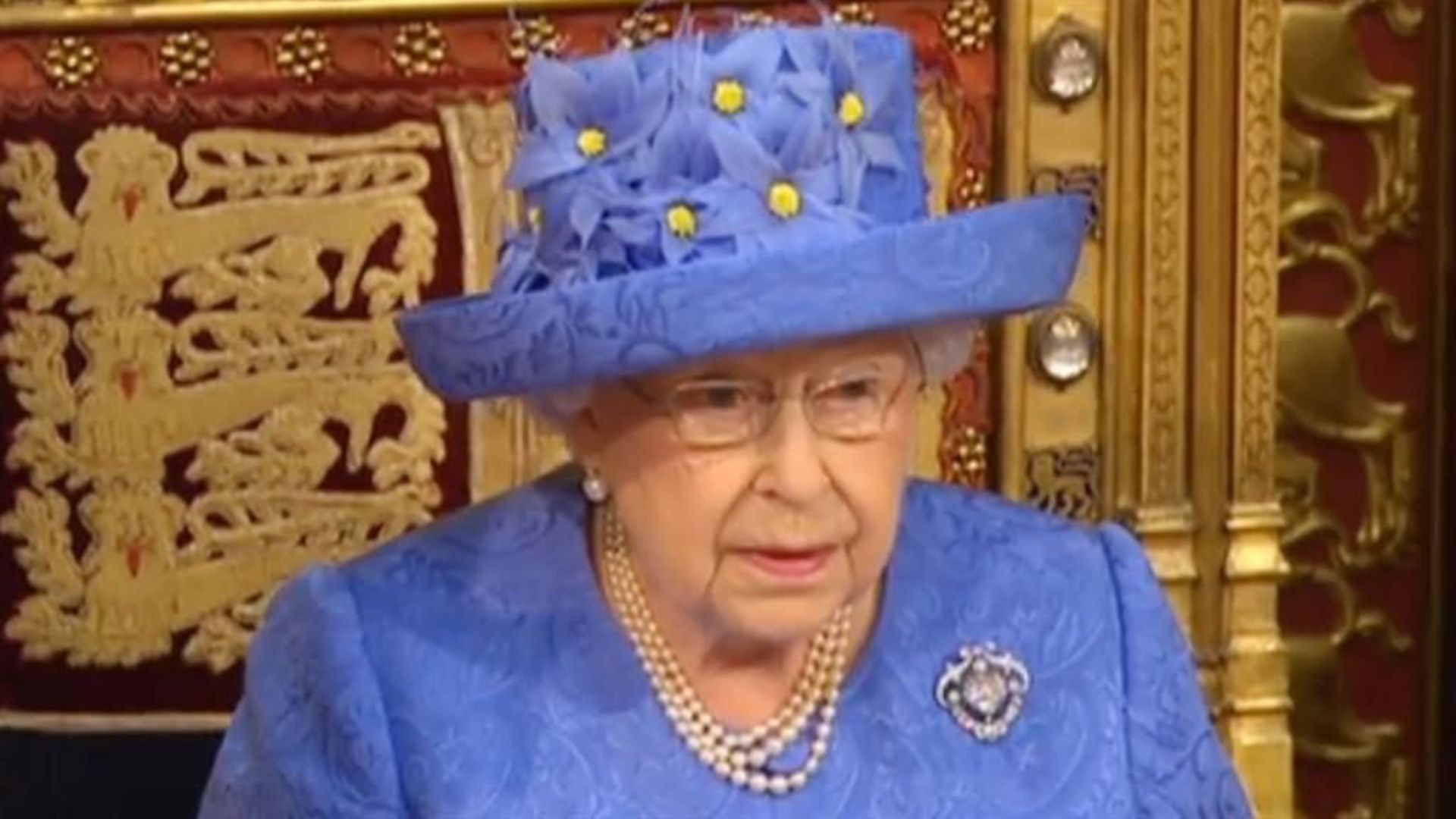
The Queen has spoken in favour of individuals seeking ‘common ground’ and ‘never losing sight of the bigger picture’ in what is likely to be interpreted as a veiled reference to the Brexit debate.
Echoing the message of her Christmas Day address, the monarch also extolled the virtues of ‘respecting’ the other person’s point of view, in a speech to mark the centenary of the Sandringham Women’s Institute (WI).
As head of state, the Queen remains publicly neutral when it comes to political matters and does not express her views on issues.
But commentators were likely to see her words as a nod to the toxic mood of the public debate around Brexit.
The Queen, who is president of the Sandringham WI, said: ‘Reflecting on a century of change, it is clear that the qualities of the WI endure.
‘The continued emphasis on patience, friendship, a strong community-focus, and considering the needs of others, are as important today as they were when the group was founded all those years ago.
‘Of course, every generation faces fresh challenges and opportunities.
‘As we look for new answers in the modern age, I for one prefer the tried and tested recipes, like speaking well of each other and respecting different points of view; coming together to seek out the common ground; and never losing sight of the bigger picture.
‘To me, these approaches are timeless, and I commend them to everyone.’
In her Christmas address the Queen touched on the same theme, telling the nation: ‘Even with the most deeply held differences, treating the other person with respect and as a fellow human being is always a good first step towards greater understanding.’
The Queen attends a meeting of the her local WI once a year at West Newton village hall as part of her winter stay on her Norfolk estate.
Other times the Queen has been brought into the Brexit debate
Christmas message
The Queen was viewed as alluding to division in the country and Westminster in her latest Christmas message. She said that even with ‘the most deeply held differences, treating the other person with respect and as a fellow human being is always a good first step towards greater understanding’.
First public comments
In October the Queen, who conventionally remains impartial on political matters, spoke publicly about Brexit for the first time. Hosting the King of the Netherlands and his wife at Buckingham Palace, she told a banquet that ‘as we look toward a new partnership with Europe’ the values shared by the UK and Holland ‘are our greatest assets’. The Queen added that as ‘innovators, traders and internationalists we look with confidence to the future’.
Royal tours
After Article 50 was triggered in March 2017, a series of visits to EU countries by royals were perceived as part of a Brexit diplomacy drive. The Duke and Duchess of Cambridge, along with children Prince George and Princess Charlotte, visited Germany and Poland on a three-day tour. William also headed to Finland on a solo trip, while the Duke of Sussex went to Denmark. The Prince of Wales travelled to Romania on the day Article 50 was activated, while he also visited Ireland with the Duchess of Cornwall.
2017 state opening of parliament
Brexit featured heavily in the Queen’s speech following the June 2017 snap election. The address, which was written by the government, laid out the Brexit legislation that the Government intended to pass during the parliamentary session. Some suggested that the Queen’s hat, which was blue with yellow floral details, resembled the flag of the European Union. The state opening was cancelled by the government in 2018 to give MPs more time to scrutinise the laws.
‘Queen backs Brexit’
During the referendum campaign a major row broke out over a front-page story that stated the Queen supported EU withdrawal. The Sun’s report said an anonymous source had told the paper she had voiced strong Eurosceptic views during a lunch in 2011 with the then-deputy prime minister Nick Clegg. The former Liberal Democrat leader later said the suggestion the Queen had given him a ‘tongue lashing’ about Europe was ‘preposterous’. Sir Nick said then-justice secretary Michael Gove was behind the story.
Buckingham Palace lodged a formal complaint with the press watchdog about the report. The Independent Press Standards Organisation upheld the complaint on grounds of accuracy, although The Sun’s editor, Tony Gallagher, stood by the story. Gove did not explicitly deny being the source.
Later that year BBC political editor Laura Kuenssberg said she had also been told the Queen supported Brexit, but did not report it as she could not find a second source to corroborate the claim.
Warning: Illegal string offset 'link_id' in /mnt/storage/stage/www/wp-includes/bookmark.php on line 357
Notice: Trying to get property 'link_id' of non-object in /mnt/storage/stage/www/wp-includes/bookmark.php on line 37






